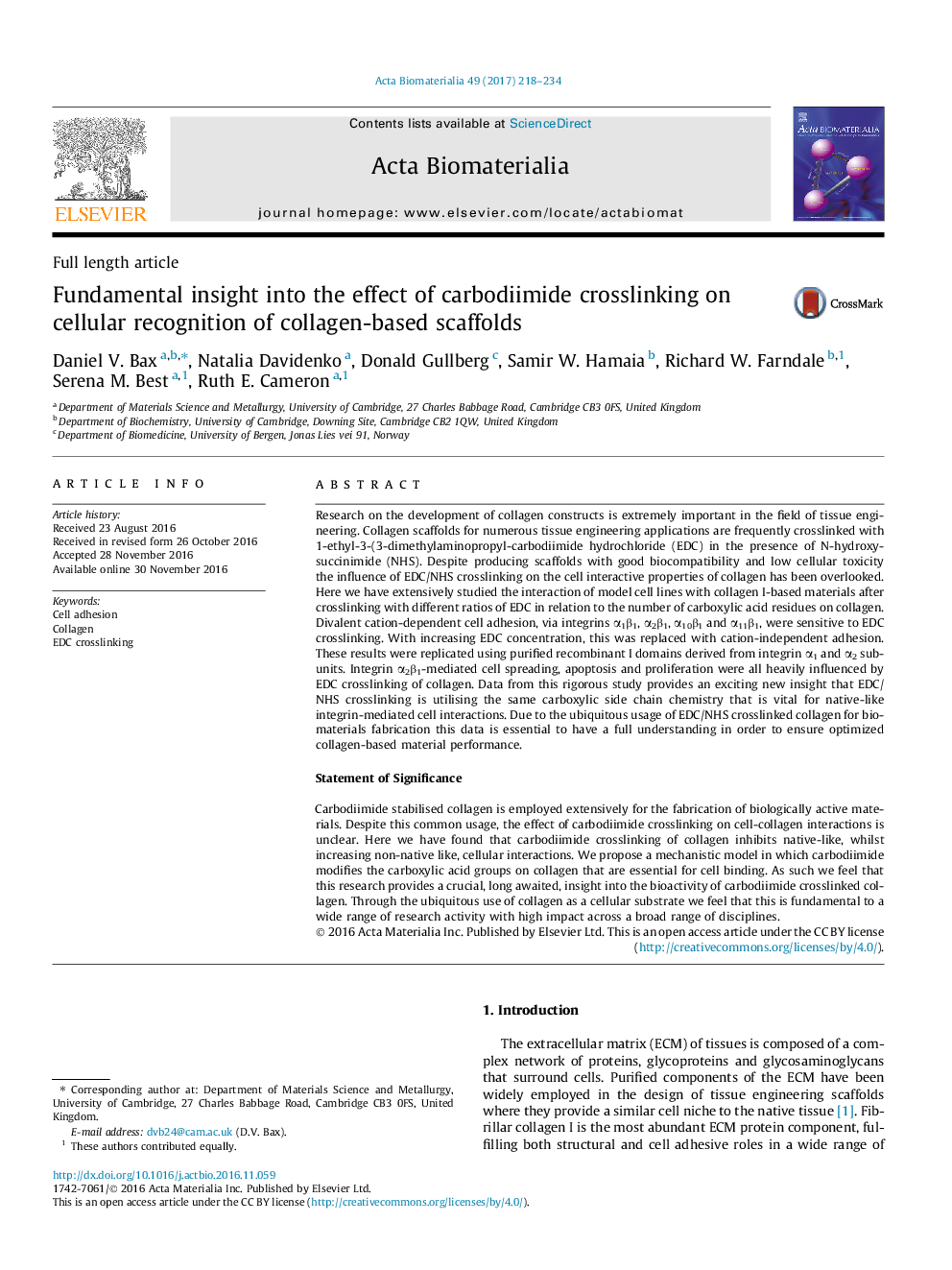| کد مقاله | کد نشریه | سال انتشار | مقاله انگلیسی | نسخه تمام متن |
|---|---|---|---|---|
| 6449796 | 1415937 | 2017 | 17 صفحه PDF | دانلود رایگان |
Research on the development of collagen constructs is extremely important in the field of tissue engineering. Collagen scaffolds for numerous tissue engineering applications are frequently crosslinked with 1-ethyl-3-(3-dimethylaminopropyl-carbodiimide hydrochloride (EDC) in the presence of N-hydroxy-succinimide (NHS). Despite producing scaffolds with good biocompatibility and low cellular toxicity the influence of EDC/NHS crosslinking on the cell interactive properties of collagen has been overlooked. Here we have extensively studied the interaction of model cell lines with collagen I-based materials after crosslinking with different ratios of EDC in relation to the number of carboxylic acid residues on collagen. Divalent cation-dependent cell adhesion, via integrins α1β1, α2β1, α10β1 and α11β1, were sensitive to EDC crosslinking. With increasing EDC concentration, this was replaced with cation-independent adhesion. These results were replicated using purified recombinant I domains derived from integrin α1 and α2 subunits. Integrin α2β1-mediated cell spreading, apoptosis and proliferation were all heavily influenced by EDC crosslinking of collagen. Data from this rigorous study provides an exciting new insight that EDC/NHS crosslinking is utilising the same carboxylic side chain chemistry that is vital for native-like integrin-mediated cell interactions. Due to the ubiquitous usage of EDC/NHS crosslinked collagen for biomaterials fabrication this data is essential to have a full understanding in order to ensure optimized collagen-based material performance.Statement of SignificanceCarbodiimide stabilised collagen is employed extensively for the fabrication of biologically active materials. Despite this common usage, the effect of carbodiimide crosslinking on cell-collagen interactions is unclear. Here we have found that carbodiimide crosslinking of collagen inhibits native-like, whilst increasing non-native like, cellular interactions. We propose a mechanistic model in which carbodiimide modifies the carboxylic acid groups on collagen that are essential for cell binding. As such we feel that this research provides a crucial, long awaited, insight into the bioactivity of carbodiimide crosslinked collagen. Through the ubiquitous use of collagen as a cellular substrate we feel that this is fundamental to a wide range of research activity with high impact across a broad range of disciplines.
172
Journal: Acta Biomaterialia - Volume 49, February 2017, Pages 218-234
